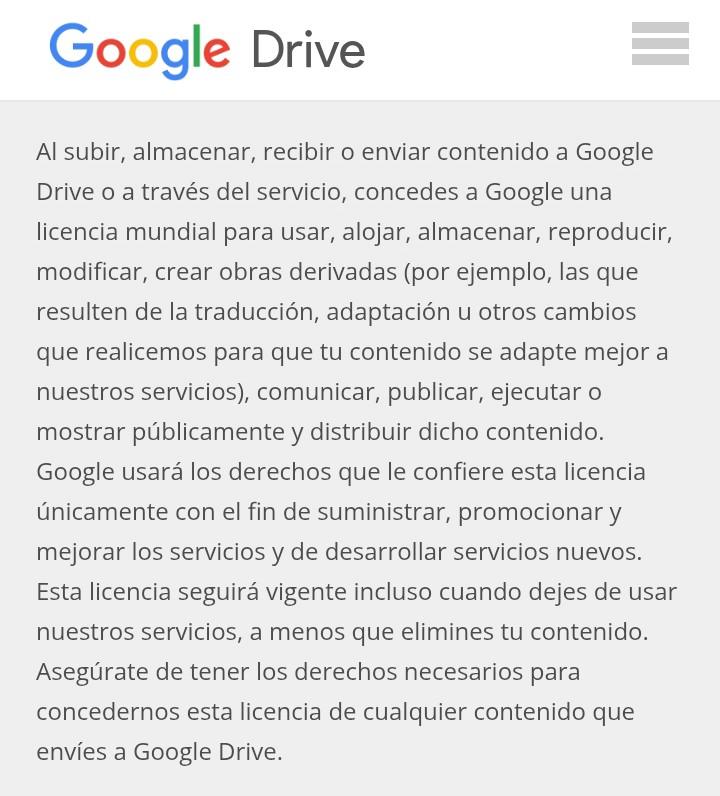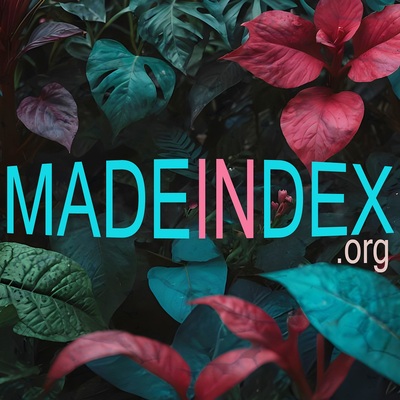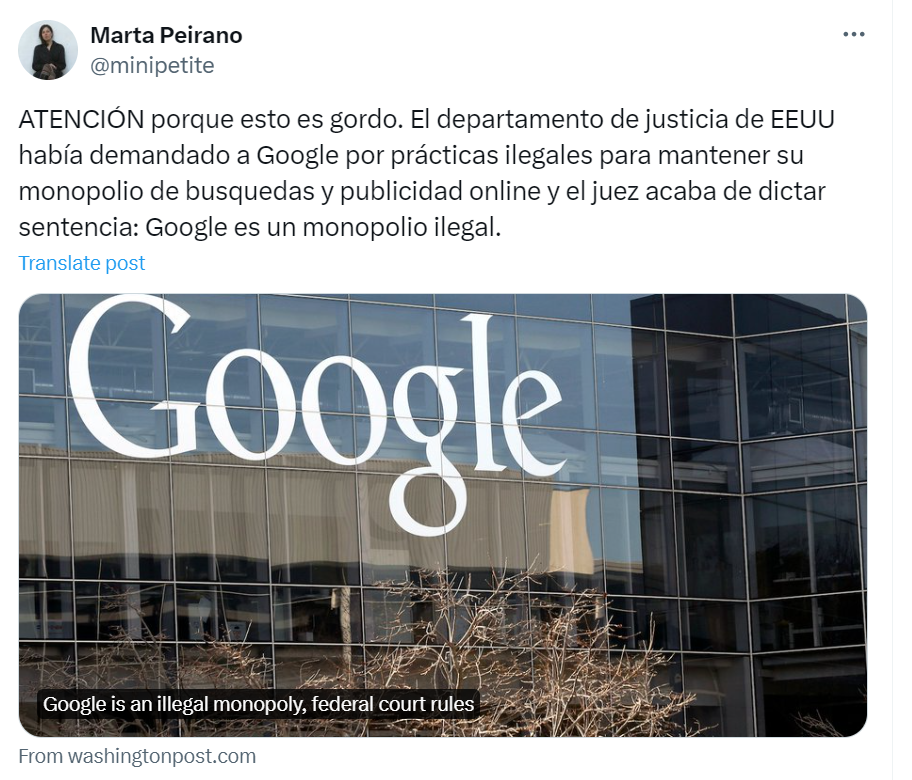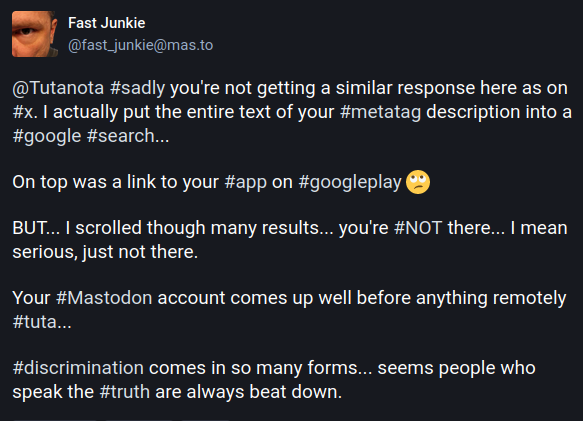A ver, que no es que me acabe de sorprender, pero me parece un poco fuerte, la verdad.
Mira los estados con etiquetas en la comunidad local de Lectura Social
Veo a mucha gente comentando que quieren abandonar los servicios de Google y preguntando por alternativas, así que os voy a decir lo que he hecho yo por si os resultara útil. Antes usaba el #Google #Workspace para el trabajo (para cosas personales nunca lo he usado) y lo cambié por la suite de #Infomaniak, una empresa suiza con servidores propios y comprometida tanto con la privacidad como con la sostenibilidad ecológica. (+)
Some people are simply UNABLE¹ to write #Alt text of their images for various reasons.
Here are some solutions on the #Fediverse:
1. Ask the community for help using #ALT4ME (needs more support)
2. Follow #Alttext bots that generate text for you, but be aware they use electricity & #Google Gemini #AI which may train on images².
✔ @TeLoDescribot
✔ @altbot
✔ @altext
✔ ...
3. For those who are forgetful, there's a reminder #bot that privately notifies you if you forgot: @PleaseCaptionBot
1/2
Some people are simply UNABLE¹ to write #Alt text of their images for various reasons.
Here are some solutions on the #Fediverse:
1. Ask the community for help using #ALT4ME (needs more support)
2. Follow #Alttext bots that generate text for you, but be aware they use electricity & #Google Gemini #AI which may train on images².
✔ @TeLoDescribot
✔ @altbot
✔ @altext
✔ ...
3. For those who are forgetful, there's a reminder #bot that privately notifies you if you forgot: @PleaseCaptionBot
1/2
Desconfiar de la #IA #DeepSeek parece razonable, pero también lo es desconfiar de #Google, #Meta, #X, #OpenAI y todas las big tech estadounidenses. La feroz campaña mediática contra DeepSeek evidencia la hipocresía de Occidente. Aceptamos el espionaje, control y fallas de seguridad de las tecnológicas estadounidenses, pero nos alarmamos si la competencia es china. El espectáculo mediático es lamentable. Ojalá aplicáramos el mismo nivel de crítica y exigencia a los oligarcas estadounidenses.
Ten Blue Links, “I am your BFDL” edition 1. Tech benevolent dictators are still… dictators
in the tech community there is a concept of the “benevolent dictator for life”. This is a leadership model where one person, usually the founder, has the final say on decisions. They guide the project’s direction, relying on their expertise and vision to keep things on track, while others contribute ideas and code.
It’s an approach that is common in open-source projects, like Python with Guido van Rossum or Linux with Linus Torvalds. It works well when the leader is trusted, but it can create challenges if they leave or if their decisions become too controlling.
Cue, of course, a discussion of what’s happening with WordPress and Matt Mullenweg’s various tantrums. Cory Doctorow has known some of the BFDLs for longer than a lot of people in tech have been alive, and …
Ten Blue Links, “I am your BFDL” edition 1. Tech benevolent dictators are still… dictators
in the tech community there is a concept of the “benevolent dictator for life”. This is a leadership model where one person, usually the founder, has the final say on decisions. They guide the project’s direction, relying on their expertise and vision to keep things on track, while others contribute ideas and code.
It’s an approach that is common in open-source projects, like Python with Guido van Rossum or Linux with Linus Torvalds. It works well when the leader is trusted, but it can create challenges if they leave or if their decisions become too controlling.
Cue, of course, a discussion of what’s happening with WordPress and Matt Mullenweg’s various tantrums. Cory Doctorow has known some of the BFDLs for longer than a lot of people in tech have been alive, and he’s written a really good post about how the BFDL turns authoritarian. It’s a highly recommended read.
2. The challenge of century-scale storageAlmost all cultures have an obsession with being remembered. It’s a common enough trope to have many examples of writing about it, from Ozymandias by Shelley to The Awakening by Arthur C. Clarke. We hate to think that culture is being lost.
But it is being lost, constantly. Most of the words that I have written in a 30 year career are no longer available, anywhere. Perhaps there are print copies of magazines I have written for somewhere in archives, but for a lot of it… nope.
Does it matter? I would argue not: what survives has always been a lottery, and for me that’s fine. Consider, for example, spintriae, the Roman coins or counters with pornographic scenes on them which have survived in large numbers but which we have no idea of the true purpose. Maybe they were brothel tokens, maybe gaming pieces – we don’t know, and are likely never to know. And that’s OK: the fact of their existence makes us use our imagination in a way that certainty over their use would not.
Fixating on what’s lost stops you from creating your own culture, your own future. While ignorance of your culture is not considered cool (thank you, The Residents), every set of living people needs the space to create their own thing, without slavishly deferring to the past.
That said, the digitalisation of culture presents its own set of problems. Via Phil Gyford, I came across this article on the technical challenges of storing anything at century scale, and it’s a great read for the nerdy and curious.
3. Intel is dead and other tech inflection pointsPaul Thurrott, who has been writing about Windows almost since before Windows, has written a long post about the death of Intel and ultimately the entire x86 world (subscriber only, sorry, work it out yourself). Paul’s right: ARM-based devices are the future, something that should have been obvious after Apple introduced its ARM machines, and that’s even more plain to see since the release of the Snapdragon X Elite.
I have almost certainly bought my last Intel-based computer, and that feels pretty good.
4. New AIs, same old problems‘Tis the season for new AI, tralalalalllllaaaaa la la la la. Recently we have had ChatGPT 4o, and now both Google Gemini 2.0 Flash and Google Gemini with Deep Research. I have, of course, been playing with all of them – I do this so you don’t have to – and all of them are big improvements in one way or another.
ChatGPT 4o improves reasoning capabilities to the point where it’s actually useful for a whole raft of different queries. For example, I asked it for an optimal route to visit both Tate Modern and Tate Britain starting and returning at Kings Cross, and it came up with the right answer. That’s cool!
Likewise, Gemini (The Deep Research Remix) is going to be amazingly useful for an entire class of work-related tasks. You can ask it to produce a report on, say, a company’s work in a specific area and it will go out, scour the web, and make a report – with high quality links. It’s not perfect, but damn it’s a big time saver for knowledge work drudgery.
BUT… Deep Research takes about five minutes to produce a report. I dread to think quite how much energy that is using, and I haven’t seen Google talk about it. I don’t want to end up burning the planet to ashes because I want a machine to plot the optimum route between two art galleries. It would be ironic if we finally create machines that both free us from unnecessary labour and, in doing so, reduce the planet to nothing.
5. Enshittification in action, againIt’s the little things that get you. YouTube has had a system in place for publishers for quite a while which allowed them to sell their own advertising for videos played on their own site, keeping the revenue. It’s a programme called Player for Publishers (PfP) and while it’s never been the biggest revenue stream in the world, if you have plenty of page views it was always worth having.
Now, of course, YouTube has decided to make the player you embed for PfP worse than if you use a standard embed. Although the company is hiding behind “protecting our advertisers and partners” when, of course, it means protecting its own revenue by lowering the quality of the experience if you sell your own ads.
It’s classic enshittification: create something that shares revenue with a business, then gradually reduce the quality of the experience and take away that revenue. Platforms can all get in the bin.
5. The Power Mac of doomWhen people talk about how bad Macs were in the 1990s, they might well be thinking of the Power Mac 4400. I don’t think anyone at the time was asking the question it was the answer to: “what if we took a bog-standard PC case and put a Mac motherboard in it?” They were flaky, not particularly cheap and you could buy a real clone based on the same motherboard which was cheaper. It wasn’t a “real” Apple machine, and it showed.
6. No 7. The male gaze of the male gaysSometimes I just wish I had written a line and this falls into exactly that space. You should, by the way, all be reading Chuck Jordan.
8. Hey newspapers, don’t do this!When I want to search a website for a particular article, I do not want you to put an AI between me and that article, thank you very much. Just give me the source, not your weird poor low-quality LLM’s take on it. Just like when I Google something I want links to articles, not a summary. Get out, all of you.
9. The pitchforks are coming! The pitchforks are coming!Back in 2014, Nick Hanauer was doing well well for himself. He had sold aQuantive to Microsoft in 2007 in a cash deal making him pretty well off. OK, very well off. Well off enough to consider himself a plutocrat.
Nick, though, had something on his mind. What he was seeing was pitchforks, people marching through the street and demanding the heads of the ultra-wealthy like him. And what’s more, he thought it was time for a little of the wealth that people had been making to actually enrich the lives of ordinary folk. He was concerned that lots of money was being made, but ordinary people weren’t sharing in it. “Unless our policies change dramatically, the middle class will disappear, and we will be back to late 18th-century France. Before the revolution.”
It’s well worth reading Nick’s essay, because it demonstrates just how long this has been bubbling under. Maybe that revolution is just about to arrive.
10. What will Elon Musk and Vivek Ramaswarmy accomplish with DOGE?One of the misconceptions of capitalism is perceiving competition as something inherently good.
For example, you may think "#Mozilla is a competitor to #Google, so they are going to focus on different niches and provide a viable alternative to people who are disenchanted with Google's browser."
However, what usually happens is more like "Mozilla is a competitor to Google, so they are going to keep monkeying whatever Google does, trying to snatch away a tiny part of their niche, poorly, and disenchanting their own users in the process."
One of the misconceptions of capitalism is perceiving competition as something inherently good.
For example, you may think "#Mozilla is a competitor to #Google, so they are going to focus on different niches and provide a viable alternative to people who are disenchanted with Google's browser."
However, what usually happens is more like "Mozilla is a competitor to Google, so they are going to keep monkeying whatever Google does, trying to snatch away a tiny part of their niche, poorly, and disenchanting their own users in the process."
Degoogle update - I've successfully migrated a majority of the apps and services I use:
Gmail => Proton
Calendar => Proton
Drive => Proton, Nextcloud
Docs => Obsidian, Nextcloud
Sheets => Nextcloud
Maps => OSMand+
Android => GrapheneOS
Play => F-Droid
Authenticator => Aegis
Podcasts (RIP) => Podverse
Chrome => Firefox, Vanadium, Chromium
Voice => not replaced
Search => SearXNG
Contacts => GrapheneOS native Contacts app, manual backups
Overall, I'm really happy with the experience. It took some effort and cost some money to get things set up, but everything works about as well as the Google equivalents and the agency feels great.
In particular, I can't imagine using the web these days without uBlock Origin. Every time I see someone else's web experience I just want to say "you live like this?"
I still haven't moved away from YouTube / YouTube Music. At this point, …
Degoogle update - I've successfully migrated a majority of the apps and services I use:
Gmail => Proton
Calendar => Proton
Drive => Proton, Nextcloud
Docs => Obsidian, Nextcloud
Sheets => Nextcloud
Maps => OSMand+
Android => GrapheneOS
Play => F-Droid
Authenticator => Aegis
Podcasts (RIP) => Podverse
Chrome => Firefox, Vanadium, Chromium
Voice => not replaced
Search => SearXNG
Contacts => GrapheneOS native Contacts app, manual backups
Overall, I'm really happy with the experience. It took some effort and cost some money to get things set up, but everything works about as well as the Google equivalents and the agency feels great.
In particular, I can't imagine using the web these days without uBlock Origin. Every time I see someone else's web experience I just want to say "you live like this?"
I still haven't moved away from YouTube / YouTube Music. At this point, I'm not sure I will. I know there's some functional pirate utilities, but my fam uses the subscription and I'm not super interested in trying to maintain a whole media center. Open to suggestions, tho.
Anyone else taking this journey feel like sharing their experience?
#selfhosting #google #grapheneos #nextcloud #libreoffice #proton #obsidian
Ojo a esto que comparte ahora mismo Marta Peirano en Twitter.
Un juez acaba de dictar en una sentencia que Google es un monopolio ilegal.
El link a la noticia en el Washington Post
https://www.washingtonpost.com/technology/2024/08/05/doj-google-monopoly-trial-judgment/
Vamos a viajar un poco por la historia de #Google y desmontar un par de mitos de esos románticos.
💾 Googletificación, del «Don’t be evil» a Skynet
https://56k.es/fanta/googletificacion-del-dont-be-evil-a-skynet/
Larry Page y Sergey Brin en 1996 no estaban fumando porros en un parque y si trabajando en un proyecto llamado ...
#google #desgoogletizacion #googletizacion #monopolio #privacidad #soberaniaDigital
#Chromium (and #Chrome) begins phasing-out Manifest v2.
https://blog.chromium.org/2024/05/manifest-v2-phase-out-begins.html
This means, among other things, that uBlock Origin is about to be disabled in Chrome. Google will choose a different extension to recommend but it can not be as effective as #uBlock Origin.
Following #Google's example, may I instead recommend you switch to #Firefox.
Firefox will continue to support Manifest v2, and consequently uBlock Origin and other extensions that can not be implemented with Manifest v3.
Happy browsing.
#Chromium (and #Chrome) begins phasing-out Manifest v2.
https://blog.chromium.org/2024/05/manifest-v2-phase-out-begins.html
This means, among other things, that uBlock Origin is about to be disabled in Chrome. Google will choose a different extension to recommend but it can not be as effective as #uBlock Origin.
Following #Google's example, may I instead recommend you switch to #Firefox.
Firefox will continue to support Manifest v2, and consequently uBlock Origin and other extensions that can not be implemented with Manifest v3.
Happy browsing.
Chrome prometía "navegación anónima" si usabas su modo #incognito
Mentían. Seguían recopilando información para venderla a data brokers.
Ahora #Google acaba de llegar a un acuerdo para zanjar una demanda y deberá eliminar todos los datos recogidos estos años, valorados en más de 5.000 millones de dólares.
Twitter fue la primera plataforma en presentar claros síntomas de intervención. En 2016 había al menos 3.841 cuentas falsas que habían producido más de 10,4 millones de tuits, que habían sido retuiteados o recomendados unas setenta y tres millones de veces.
El primer informe de Inteligencia se centró en Google y Facebook, y estudió el uso de sus plataformas publicitarias y la clase de campaña sutil y efectiva que procuraron. Los dos informes más extensos y recientes de la firma de ciberseguridad New Knowledge y del Laboratorio de Propaganda Computacional de la Universidad de Oxford, indican que la Agencia rusa había tejido una red mucho más compleja; un ecosistema autorreferencial y expandido que incluía grupos de Google+, Reddit, Tumblr, Pinterest, Vine, y sobre todo Instagram y YouTube. Todas las cuentas se retroalimentaban unas a otras a lo largo de distintas plataformas de manera consistente. Los dos informes aseguran que las plataformas ocultaron al Congreso la gravedad y el alcance de la infección.
— El enemigo conoce el sistema / The Enemy Understands the System por Marta Peirano



















